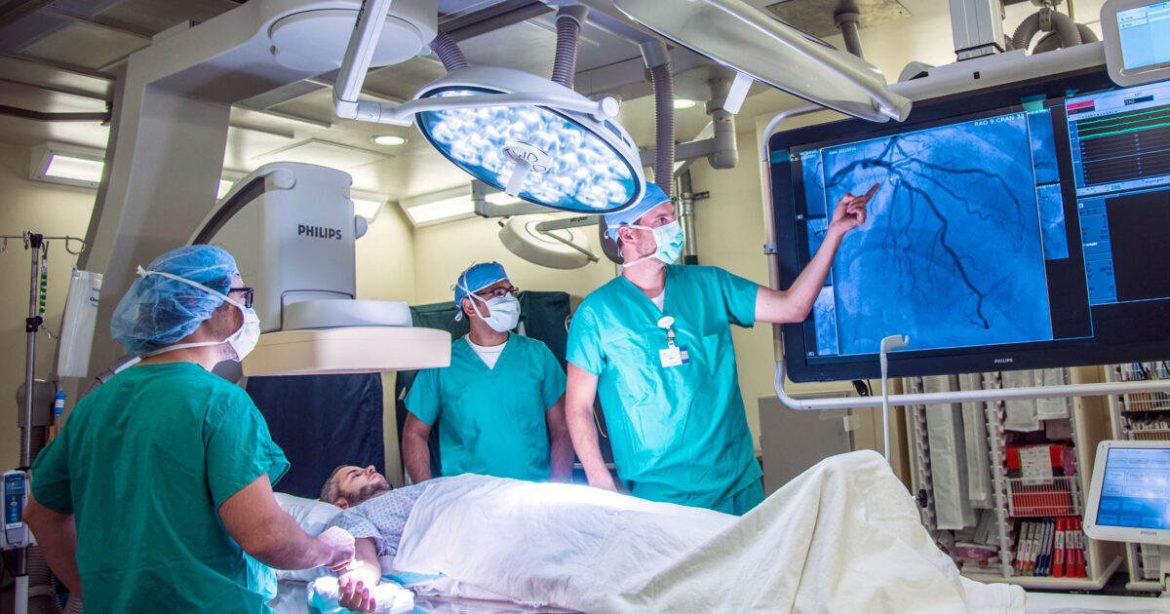Pulmonary hypertension (PH) is a complex and potentially life-threatening condition characterized by high blood pressure in the arteries of the lungs. It can lead to serious complications such as heart failure and can significantly impact a patient’s quality of life. Managing pulmonary hypertension requires a multidisciplinary approach, with various specialists playing crucial roles in diagnosis, treatment, and ongoing care.
Understanding Pulmonary Hypertension
Before delving into the types of doctors involved in treating pulmonary hypertension, it’s important to grasp the basics of this condition. Pulmonary hypertension occurs when the arteries in the lungs become narrowed, blocked, or damaged, leading to increased resistance to blood flow through the lungs. As a result, the right side of the heart must work harder to pump blood through the lungs, which can eventually weaken the heart muscle.
PH is classified into five groups based on different underlying causes and mechanisms. Group 1, known as pulmonary arterial hypertension (PAH), includes idiopathic (of unknown cause), heritable, and associated conditions such as connective tissue diseases and congenital heart defects. Other groups encompass PH due to left heart disease (Group 2), lung diseases and chronic hypoxia (Group 3), chronic thromboembolic PH (Group 4), and PH with unclear multifactorial mechanisms (Group 5).
SEE ALSO: At What Age Should Blood Pressure be Checked
What Type of Doctor Treats Pulmonary Hypertension?
Pulmonologist:
A pulmonologist is often the first specialist involved in the care of patients with suspected pulmonary hypertension. These doctors specialize in diseases of the respiratory system, including the lungs and airways. They play a pivotal role in diagnosing PH through various tests such as pulmonary function tests, imaging studies (like CT scans and echocardiograms), and arterial blood gas analysis. Pulmonologists also conduct right heart catheterizations, a key procedure to confirm the diagnosis of pulmonary hypertension by directly measuring pressures within the heart and lungs.
Cardiologist:
Cardiologists are essential in managing pulmonary hypertension, especially in cases where it affects the heart’s function.
They specialize in diagnosing and treating heart conditions and are crucial in evaluating the impact of PH on heart function through echocardiography, cardiac MRI, and stress testing. Cardiologists work closely with pulmonologists to determine the best treatment approach, which may involve medications to lower pulmonary pressures and improve heart function.
Rheumatologist:
In cases where pulmonary hypertension is associated with autoimmune diseases like scleroderma or lupus, a rheumatologist becomes a key member of the treatment team. These specialists focus on autoimmune and inflammatory conditions that can affect various organs, including the lungs and blood vessels. Rheumatologists help manage underlying autoimmune diseases that contribute to pulmonary hypertension and collaborate with other specialists to optimize treatment strategies.
Pulmonary Hypertension Specialist:
Some centers have specialized physicians who exclusively focus on treating pulmonary hypertension. These specialists have advanced training and expertise in managing all forms of PH, including severe and complex cases. They stay updated with the latest research and treatment guidelines, ensuring that patients receive the most effective therapies available.
Pulmonary hypertension specialists often lead multidisciplinary teams that include cardiologists, pulmonologists, rheumatologists, and other healthcare professionals.
Cardiothoracic Surgeon:
In certain situations, surgery may be necessary to treat underlying causes of pulmonary hypertension, such as chronic blood clots in the lungs (chronic thromboembolic pulmonary hypertension, or CTEPH). Cardiothoracic surgeons specialize in performing surgeries related to the heart, lungs, and chest cavity. They may perform pulmonary thromboendarterectomy (PTE) to remove chronic clots from the pulmonary arteries or other procedures to repair or replace damaged heart valves or correct congenital heart defects contributing to PH.
Interventional Radiologist:
Interventional radiologists play a role in treating certain types of pulmonary hypertension through minimally invasive procedures. For example, they may perform pulmonary angioplasty or place stents to open narrowed or blocked arteries in the lungs. These procedures can help improve blood flow and reduce pulmonary pressures, particularly in cases of chronic thromboembolic pulmonary hypertension (CTEPH) where traditional surgery may not be an option.
Collaborative Care Approach
Managing pulmonary hypertension effectively requires a collaborative approach among various specialists, each contributing their expertise to develop a comprehensive treatment plan tailored to the patient’s specific condition and needs. This multidisciplinary team may also include nurses, respiratory therapists, nutritionists, and social workers who provide essential support and education to patients and their families.
Conclusion
In conclusion, pulmonary hypertension is a complex condition that requires specialized care from a team of healthcare professionals with expertise in different aspects of cardiovascular and respiratory medicine. Pulmonologists, cardiologists, rheumatologists, pulmonary hypertension specialists, cardiothoracic surgeons, and interventional radiologists all play crucial roles in diagnosing, treating, and managing pulmonary hypertension. Through their combined efforts and advanced therapies, patients with pulmonary hypertension can receive comprehensive care aimed at improving their quality of life and prognosis.
By understanding the roles of these specialists and the collaborative nature of their care, patients and their families can better navigate the challenges posed by pulmonary hypertension and work towards achieving the best possible outcomes.


